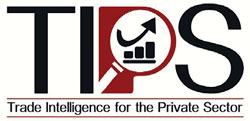09 Feb 2017 - {{hitsCtrl.values.hits}}

 As international commerce becomes more dynamic and more complex, trading parties need faster payment methods electronically in a timely and cost-effective manner.
As international commerce becomes more dynamic and more complex, trading parties need faster payment methods electronically in a timely and cost-effective manner.
In many developing economies, authorities are enhancing their payments infrastructure promoting greater usage of non-cash payment methods, i.e., moving towards electronic payments to conduct business.
Electronic payments create ease in international trade both within the country as well as outside the country, by reducing transaction costs, requiring fewer human resources, and cutting down on administrative time and expenses.
Sri Lanka has ratified the World Trade Organization (WTO) Trade Facilitation Agreement(TFA)and commits the country to a series of trade facilitation reforms (known as Category A commitments) as soon as the agreement comes into force. Implementing electronic payments was identified as a Category Acommitment by Sri Lanka. However, it is now being suggested that it should be moved to a Category B commitment, which can take much longer.
Current limitations
Currently, Sri Lanka Customs accepts e-payments through ‘AsycudaWorld’, but there are limitations. Existing government financial regulations allow payment only via two state-banks - Peoples Bank and Bank of Ceylon. No credit card or debit card payments are accepted by Customs for cargo or passenger payments.
All other government agencies involved in border regulation can accept only cash or bank checks for the payment of fees and charges. In several cases, agencies do not have payment facilities available at the point of clearance, and traders must arrange payment at another location.
Private sector stakeholders are calling for a change to this; consolidating all the various agency fees and payable at once through electronic payment, through one ‘window’. Already, systems do exist to make this possible. The national payments and settlements provider, LankaClear has proposed setting up of the ‘LankaPay Online Payment Platform’ (LPOPP), together with seven commercial banks (Bank of Ceylon, Commercial Bank, Sampath Bank, Seylan Bank, CargillsBank, Peoples Bank and Amana Bank) who have all been certified end-end for secure customs payments.
Testing process
Currently National Development Bank, HNB and Union Bank have commenced their testing process and would be ready with the certification within two weeks to complete 10 certifications. Under this system, there will be no additional charge levied by the banks (as mandated by the Central Bank), except for the existing fees already charged on real-time payments of between Rs. 50-100. This is a significant reduction in transaction costs compared to the current pay order charge of Rs. 250 to Rs.300 per payment.
Sri Lanka already has the necessary regulations to make this happen. The Electronic Transactions Act of 2006 provides for full implementation of this system, alongside acceptance of electronic signatures.
The lack of initiative and inability to implementavailable systems in electronic payments, is letting down Sri Lanka’s cross-border traders at many different levels and the economy’s competitiveness overall. At a time that Sri Lanka is ready to simplify international trade as a whole, all policy makers should support the private sector’s vision and be attuned to their requirements in terms of implementation and acceptance of electronic transactions and electronic signatures.
(Dinesh De Silva is the Chairman of the CCC’s Import Section and the Chamber’s representative on the National Trade Facilitation Committee. The views expressed in this article are strictly the author’s own. The Ceylon Chamber of Commerce ‘Trade Intelligence for the Private Sector’ (TIPS) initiative aims to help our members stay up-to-date on international trade issues and advocate for policy changes)
09 Jan 2025 3 hours ago
09 Jan 2025 5 hours ago
09 Jan 2025 7 hours ago
09 Jan 2025 7 hours ago
09 Jan 2025 8 hours ago